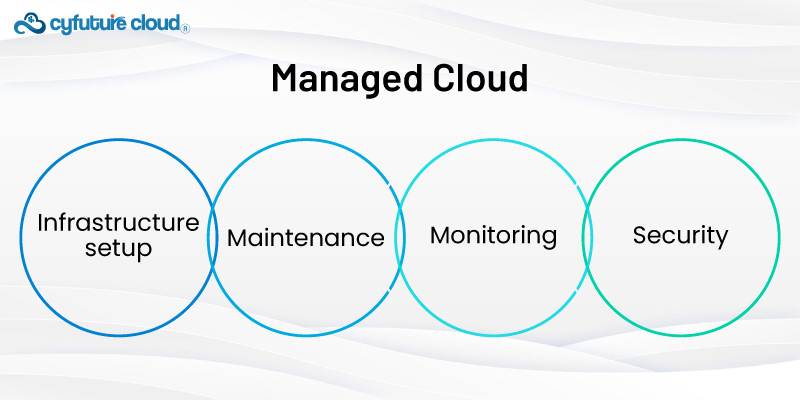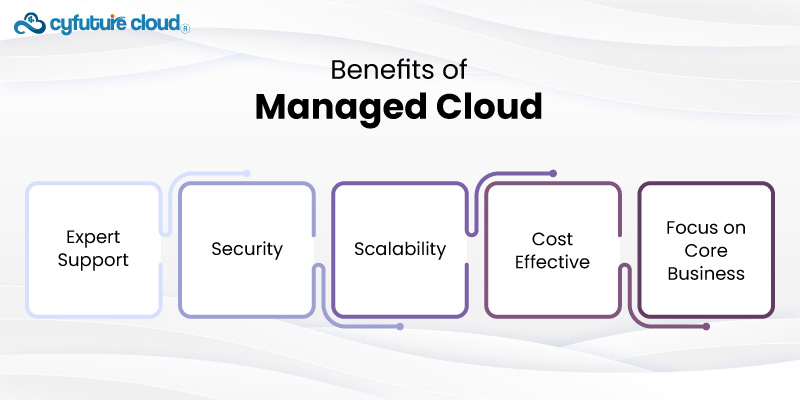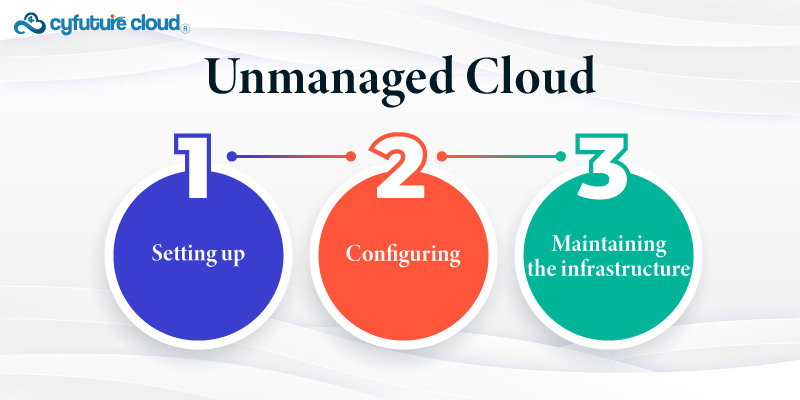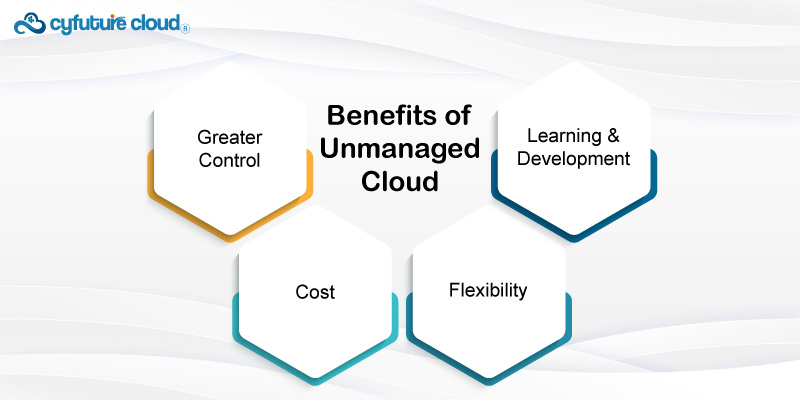 Server
Colocation
Server
Colocation
 CDN
Network
CDN
Network
 Linux Cloud
Hosting
Linux Cloud
Hosting
 VMware Public
Cloud
VMware Public
Cloud
 Multi-Cloud
Hosting
Multi-Cloud
Hosting
 Cloud
Server Hosting
Cloud
Server Hosting
 Kubernetes
Kubernetes
 API Gateway
API Gateway


The cloud computing offers a wide range of services and deployment models, including:
One of the crucial choices that organizations are required to make is whether to opt for managed or unmanaged cloud services. It impacts everything from cost and control to security and support. The next section discusses the main distinctions between these two. This will assist you in identifying the right match for your organization.

Managed cloud services are a set of IT solutions and services that an external vendor oversees and maintains for an organization. This management covers a wide range of tasks, including:
- Infrastructure setup
- Maintenance
- Monitoring
- Security
The first objective is to guarantee that the cloud environment runs effectively. It should be protected from threats while involving the client to a small extent.

The managed cloud providers are always available with technical support from experienced IT personnel. This support can be very helpful in solving problems and avoiding long periods with no work.
Managed services often include robust security measures, such as:
- Firewalls
- Intrusion detection systems
- Regular security audits
Providers stay updated with the latest security threats and compliance requirements.
Managed cloud solutions are highly scalable. It allows businesses to easily adjust resources based on their needs without worrying about underlying infrastructure constraints.
While managed services can be more expensive upfront, they often result in cost savings over time due to:
- Reduced downtime
- Efficient resource management
- Avoidance of hiring in-house IT staff
Outsourcing relieves the organization of managing its IT needs. It allows them to concentrate on the business and its objectives rather than worrying about the complex specifics of IT.

On the other hand, unmanaged cloud services provide the raw infrastructure without any additional management or support services. The client is responsible for all aspects of cloud management, including:
- Setting up
- Configuring
- Maintaining the infrastructure

Unmanaged cloud services provide full control over the infrastructure. Organizations can customize their environment according to specific needs and preferences.
Initially, unmanaged cloud services can be less expensive than managed services because you only pay for the infrastructure. However, costs can accumulate if extensive management and maintenance are required.
Organizations can implement any software, tools, or configurations they prefer without restrictions imposed by a managed service provider.
Having your own cloud infrastructure also benefits the in-house IT teams, allowing them to gain experience and knowledge and grow.
To better understand the distinction between managed and unmanaged cloud services, consider the following comparison table:
|
Security |
Advanced security features included |
Basic security; up to the client to manage |
|
Scalability |
Easily scalable with provider's assistance |
Scalability depends on client's capability |
|
Cost |
Higher upfront cost; cost-effective over time |
Lower initial cost; potential high ongoing costs |
|
Control |
Limited control; managed by provider |
Full control; managed by client |
|
Maintenance |
Provider handles all maintenance |
Client responsible for maintenance |
|
Customization |
Limited by provider's offerings |
Highly customizable by client |
|
IT Staff Requirements |
Minimal in-house IT required |
Requires a skilled in-house IT team |
|
Compliance |
Provider ensures compliance |
Client responsible for compliance |
|
Updates |
Automatically handled by provider |
Client must manage updates |

Managed and unmanaged cloud services are two broad categories of cloud services, and the choice between them depends on numerous factors
It is suitable for businesses that may not have IT departments or specializations or those that would rather contract out their IT needs. Managed services are especially helpful for small—to medium-sized companies that require extensive support but cannot afford to employ an internal IT department.
This option is appropriate for organizations with a competent IT department to handle the infrastructure. It is also suitable for organizations that require complete control over the environment and can manage all the related tasks. Unmanaged cloud services are used by large enterprises with huge IT infrastructure and those who have unique customization requirements.
Managed and unmanaged cloud services offer different support, control, and cost implications. Managed cloud services provide comprehensive management and support, making them ideal for businesses seeking ease of use and robust security. Unmanaged cloud services offer greater control and customization at a potentially lower initial cost but require significant IT expertise and resources. By carefully assessing your organization's needs and capabilities, you can choose the cloud hosting service model that best aligns with your strategic goals.

Let’s talk about the future, and make it happen!
By continuing to use and navigate this website, you are agreeing to the use of cookies.
Find out more


